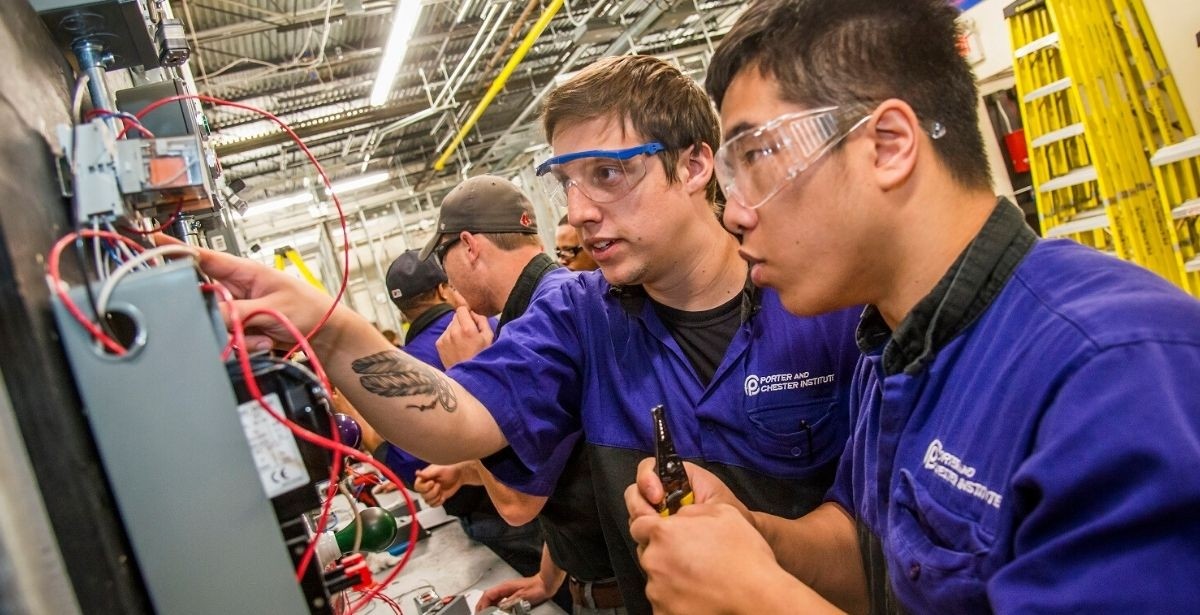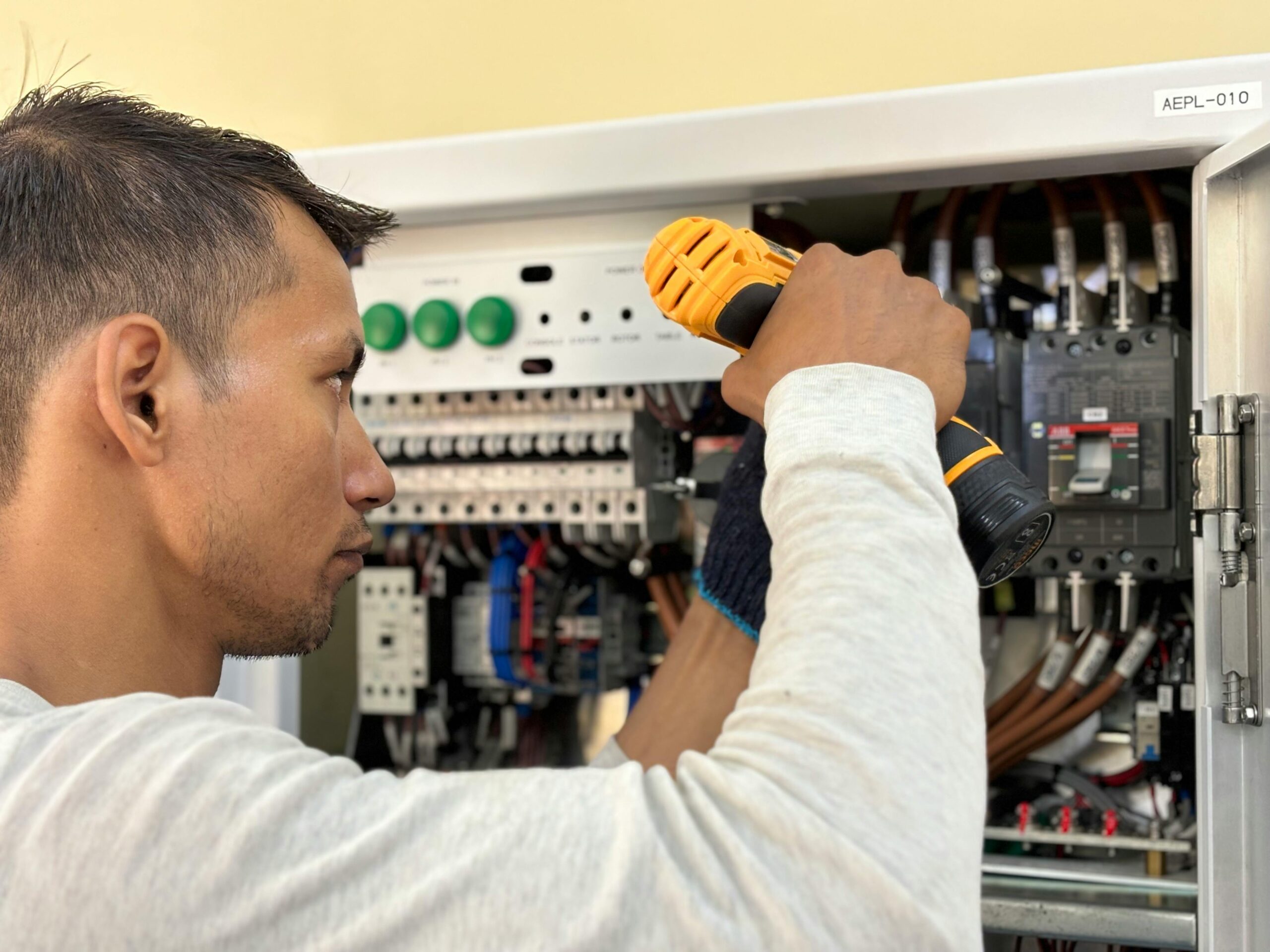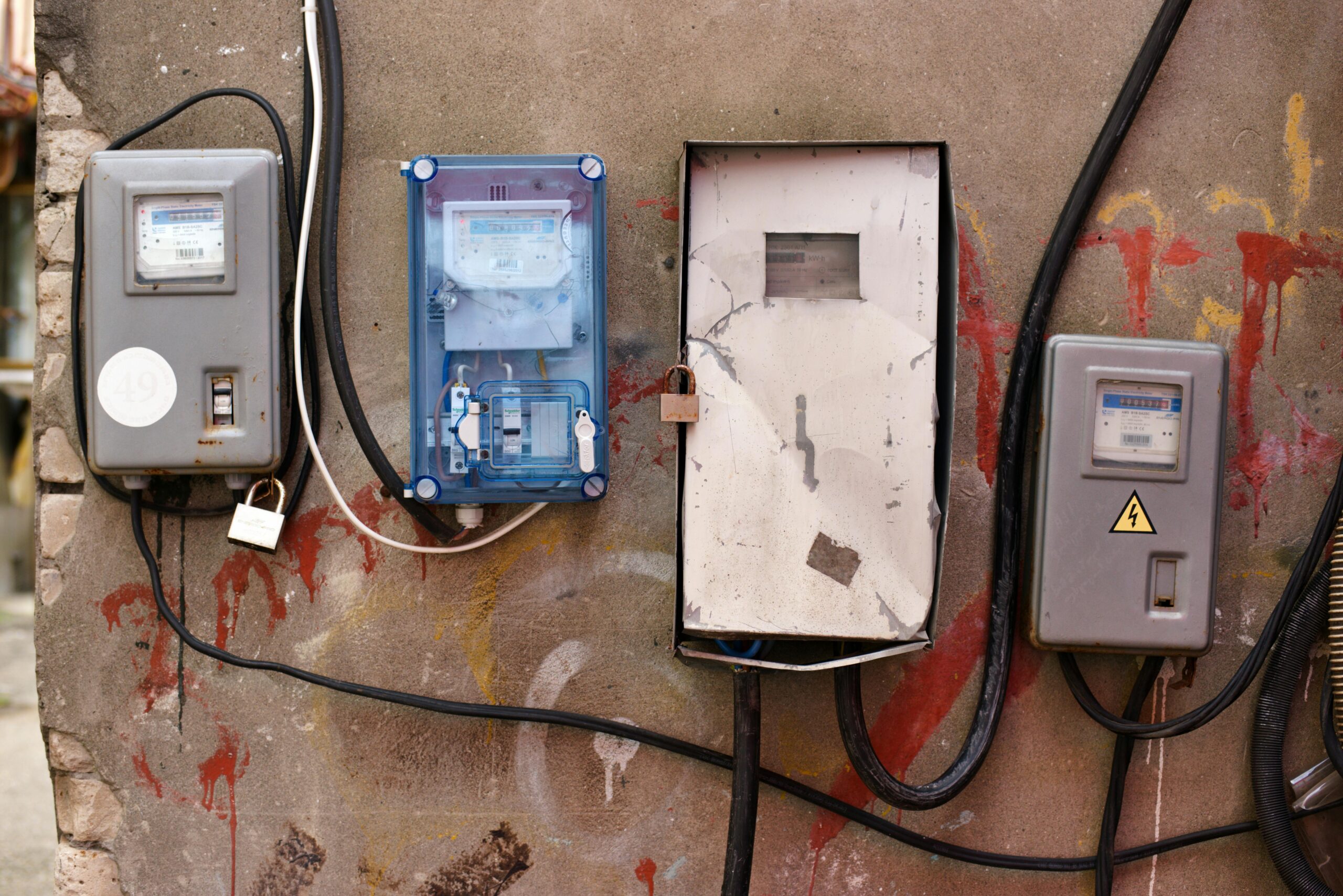An electrician is a skilled tradesperson specializing in installing, repairing, and maintaining electrical systems. These professionals are responsible for providing safe and efficient power to homes, businesses, and other places that require electricity. Electricians have the potential to earn good money and enjoy job security, plus they get to work with their hands and explore new technologies.
Are you considering a career in the electrical field? This article will take you through each process step, from researching licensing requirements and choosing which educational route to follow to finding job opportunities and becoming certified. Follow along as we provide an ultimate guide for becoming a professional electrician.
Education and Training
Whether you are just starting in the field of electrician work or are looking for a career change, you might be wondering how to become a professional electrician. Here is what you need to know:
High School Education Requirements
A high school diploma or GED is usually required to pursue a career as an electrician. However, it is also helpful to take classes in math and science while in high school; math classes will give you a better understanding of the electrical principles and calculations used in this profession, while science classes will help you understand electricity and circuits.
Vocational Schools and Trade Programs
Vocational schools, community colleges, and union-affiliated trade programs are all good sources for learning about electrical installations and repairs. During such training, you can expect to gain theoretical knowledge of electricity through classroom instruction and practical experience through fieldwork.
Apprenticeships
An apprenticeship is considered one of the best ways to learn how to become an electrician since it often provides young adults on-the-job training under licensed journeymen or master electricians. As part of an apprenticeship program, trainees must obtain 4–5 years of experience working with various types of electrical systems before moving on to higher certification levels.
On-the-Job Training
Workers who have completed an accredited trade or apprenticeship program may need on-the-job training to learn advanced skills.
Continuing Education
Various organizations offer professional development courses in order to help professionals expand their knowledge base and keep up-to-date with changes in technology or industry regulations.
Licensing and Certification
Understanding your area’s licensing and certification requirements as an electrician is essential. To help you get started, here are key points to keep in mind:
State and Local Licensing Requirements
Most states have specific licensing requirements for electricians, so it’s essential to consult with the appropriate state agency when obtaining a license. Generally, most jurisdictions require at least two years of on-the-job training or a combination of classroom instruction and practical experience before you can apply for a license.
Likewise, many cities, counties, or townships might also have additional requirements for someone to work as an electrician.
National Electric Code (NEC)
The National Electric Code (NEC) sets out the standards for electrical installation nationwide. As such, professionals working in the field must understand its provisions and use them during installations or repairs.
In addition, the NEC provides information about wiring techniques, safety procedures, and other established protocols relating to electricity usage in commercial and residential buildings.
Journeyman Electrician vs. Master Electrician
A journeyman electrician typically has completed 8,000–10,000 hours of on-the-job training under a master electrician or several years of technical schooling; they may perform all types of electrical work but cannot sign off on projects as they lack the authority by law.
On the other hand, master electricians must complete more than 15,000 hours of experience before taking licensing exams; they can supervise apprentice electricians while acting as lead installers responsible for signing off on projects once they have been completed according to code regulations.
Exam Requirements and Preparation
Those who wish to become licensed electricians must pass both state and local examinations before working independently; preparation typically involves reviewing relevant material from textbooks or taking preparatory courses offered by professional organizations like NECA or the International Brotherhood of Electrical Workers (IBEW). It is also helpful for candidates to review practice tests online before taking the actual exam.
Renewal & Ongoing Education
In some jurisdictions where continuing education courses are required for license renewal every few years, many states provide a set number of hours needed through classes conducted by government entities such as community colleges or private organizations like NECA or IBEW. These courses will help ensure licensed professionals comply with updated industry standards related to wiring techniques and safety procedures.
Getting Started in the Industry
With the proper steps and knowledge, beginning electricians can land their dream job. However, to become an expert in the field, you must understand what it takes to get started – from certifications to hands-on experience.
Finding an Entry-Level Position
Many aspiring electricians start looking for entry-level positions with established companies or contractors as electricians’ helpers, apprentices, or related roles. Researching job boards such as Indeed and LinkedIn can help you find postings suitable for your skills and experience level. Additionally, building relationships with colleagues already working in the field can be helpful in terms of finding opportunities or getting advice about best practices for success.
Building Your Network
Attending local meetups or trade fairs aimed at connecting people from within the same profession is a great way to connect with potential employers, mentors, or colleagues that can provide insight into how to get ahead in the field of electrician work. It would be best if you also considered creating a personal portfolio showcasing the skills you could easily share with prospective employers.
Tools & Equipment Needed
Access to proper tools and equipment is critical when beginning a career as an electrician; you will likely need items like electrical tape, wire strippers/cutters, screwdrivers, multimeters, testers, clamps, etc., depending on what type of installations/repairs you plan to perform. It would also be beneficial to have safety gear such as safety glasses and insulated gloves, which will help protect from potential hazards associated with electrical work.
Safety Gear & Training
Safety training courses provided by professional organizations like NECA or IBEW are essential for individuals seeking careers in this field; these courses generally cover topics related to OSHA regulations related to using tools and working near electricity sources.
In addition, they were adhering to basic safety principles such as wearing appropriate protective gear (or PPE) at all times while on the job site is vital to protecting yourself and your co-workers or customers present during any installations/repairs taking place.
Career Advancement
If you’re ready to take on the challenge, becoming an electrician offers rewarding opportunities and a lucrative salary. To achieve your career goals, it’s essential to understand how best to advance in this field.
Gaining Experience
The more experience you have working in the industry, the better your chances of finding a job with a reputable company or even starting your own business. Volunteering or taking on unpaid projects can give you valuable experience that can increase your marketability when applying for jobs. It also helps to keep up with current trends to remain knowledgeable about technology and best practices within this field.
Specializing in a Particular Area
Electricians may choose to specialize in areas such as residential, commercial, industrial, or telecommunications; this allows them to hone their skills and knowledge related to specific types of electrical installations/repairs and use them depending on the needs of their client base. For example, those specializing in industrial settings may work with larger systems or components than those servicing residential customers.
Starting Your Own Business
If you have gained enough experience and want more control over your work environment, starting your own business might be a viable option. Researching legal requirements related to licensing fees or taxes necessary when setting up a shop and knowing how/where to source materials needed for projects is crucial. Additionally, it is vital to maintain all insurance policies required by law; not having these documents could lead to costly fines or fines later on down the line.
Continuing Education & Certification
Whether it’s through online courses offered by professional organizations like NECA or IBEW, attending workshops focused on specific topics related to electrical installation/repair techniques, or taking classes at community college trade schools – gaining additional knowledge constantly helps advance one’s career as an electrician since staying updated with safety regulations and industry standards is essential when providing services for clients.
FAQs
Becoming an electrician is a big decision, and there are many considerations to remember before starting such a career. Here are answers to some of the most commonly asked questions:
- What Are The Different Types of Electricians?
Electricians can specialize in several areas, from residential wiring to commercial and industrial setups. Depending on which site you decide to focus on, your job description may vary.
- How Long Does It Take To Become An Electrician?
The amount of time it takes to become a licensed electrician varies depending on the state’s requirements; however, typically, individuals will begin by completing an apprenticeship program that lasts 3-5 years, followed by taking any necessary licensing exam(s).
- How Much Do Electricians Make?
The average salary for electricians is $21.80/hour, and job opportunities across all industries are expected to increase by 8% from 2018-2028.
- Is Becoming An Electrician A Dangerous Job?
By following safety protocol, working as an electrician can be less dangerous.
- Can Women Become Electricians?
Yes – women can pursue careers within this industry. In fact, according to BLS data from 2019 – women represented roughly 9% of all employed electricians across the United States – making it one of few occupations where female representation remains well below 25%.
- What Skills Are Needed To Be A Successful Electrician?
Having strong technical skills related to electrical installations/repairs knowledge is undoubtedly critical for success within this field; however, having soft skills such as problem-solving abilities, good communication skills with customers/colleagues, etc.
Conclusion
Becoming a professional electrician requires dedication and knowledge, but the rewards of being an independent expert in the field can be worth it. If you’re looking for electrical work opportunities—maintenance or installations—or simply advice on becoming a professional electrician, then Smith & Jones Electric is here for you! With our respective teams’ combined knowledge and expertise in this field, we can provide reliable guidance, information, and support throughout your electrical journey.
We help companies refine their messaging, hone in their sales process, and grow their pipeline – all with a new website.




